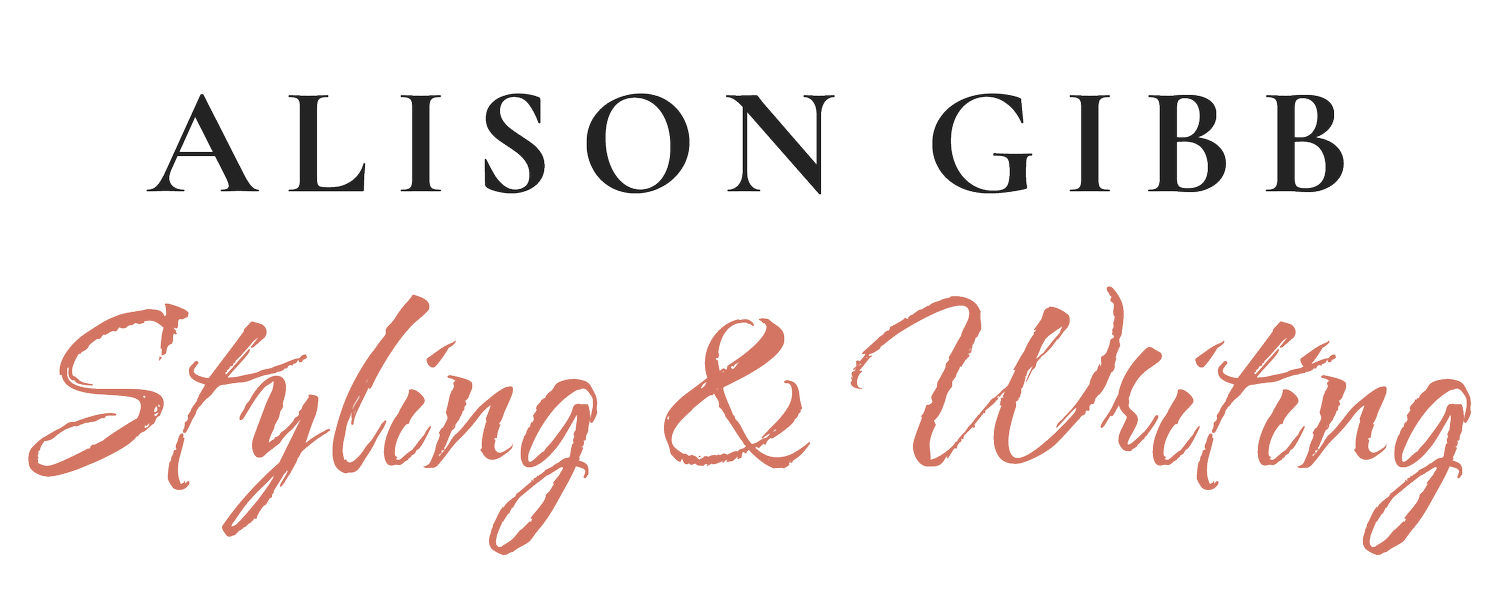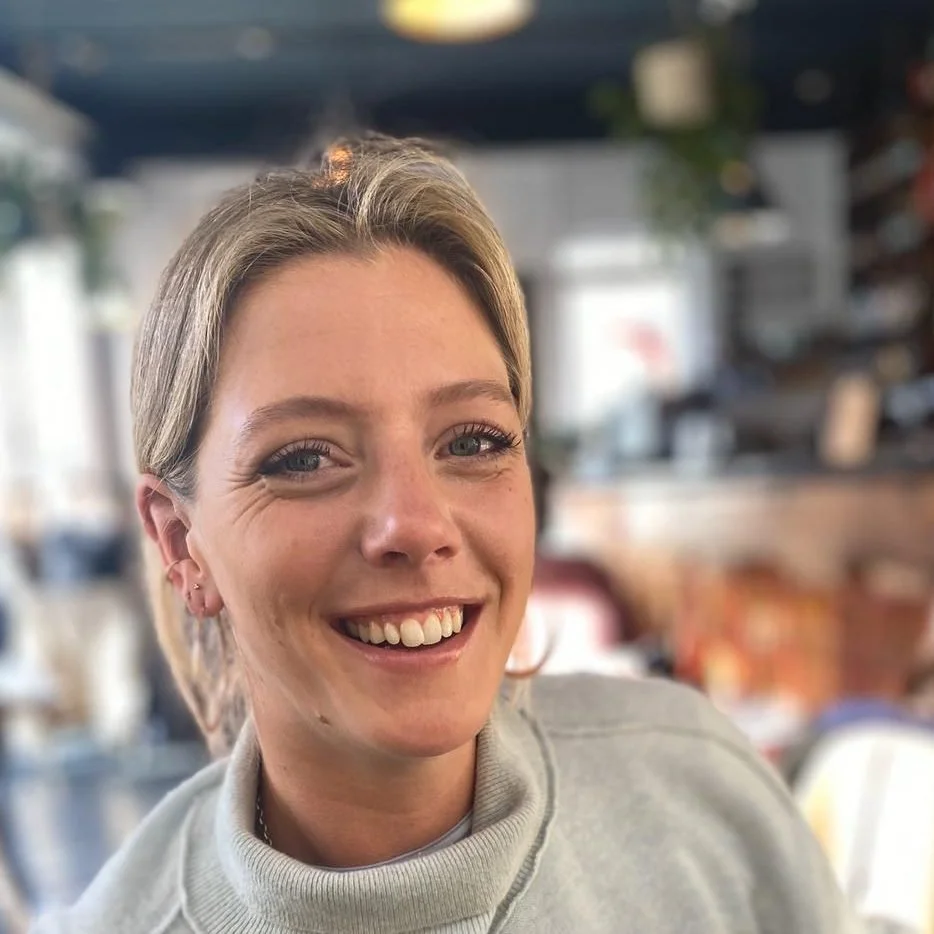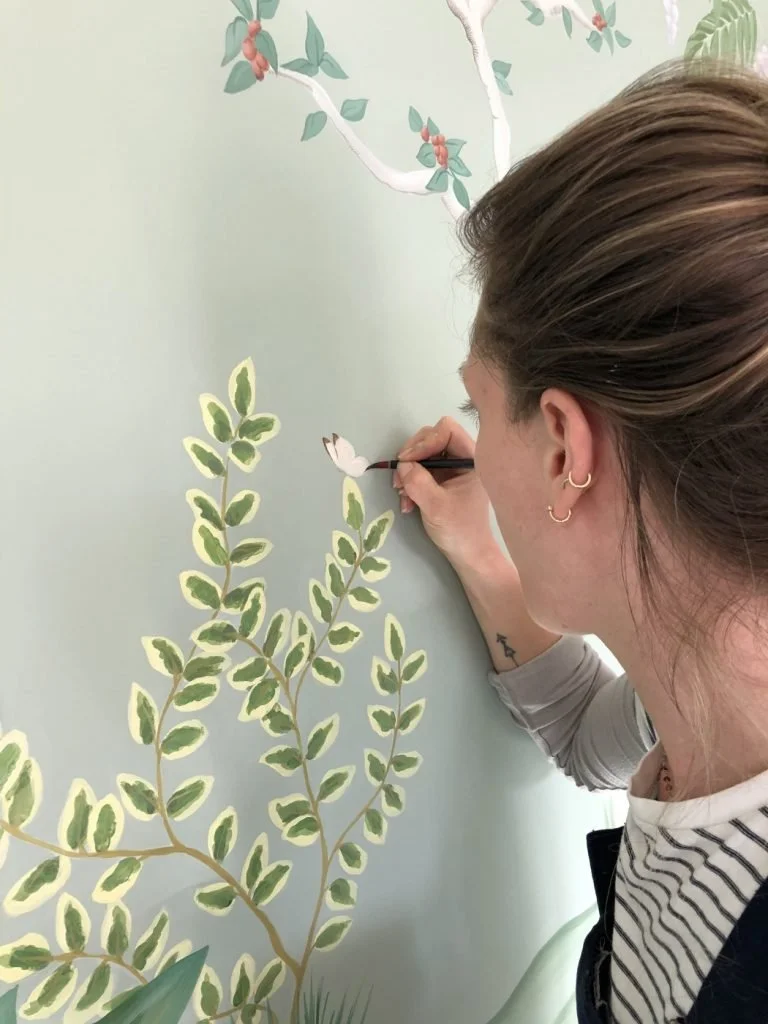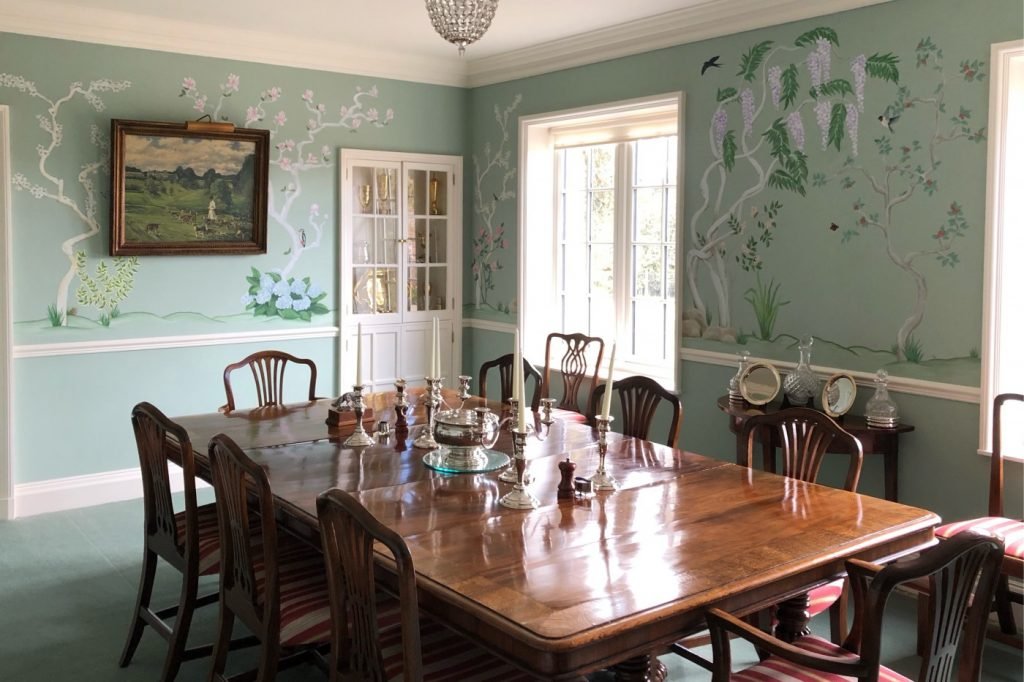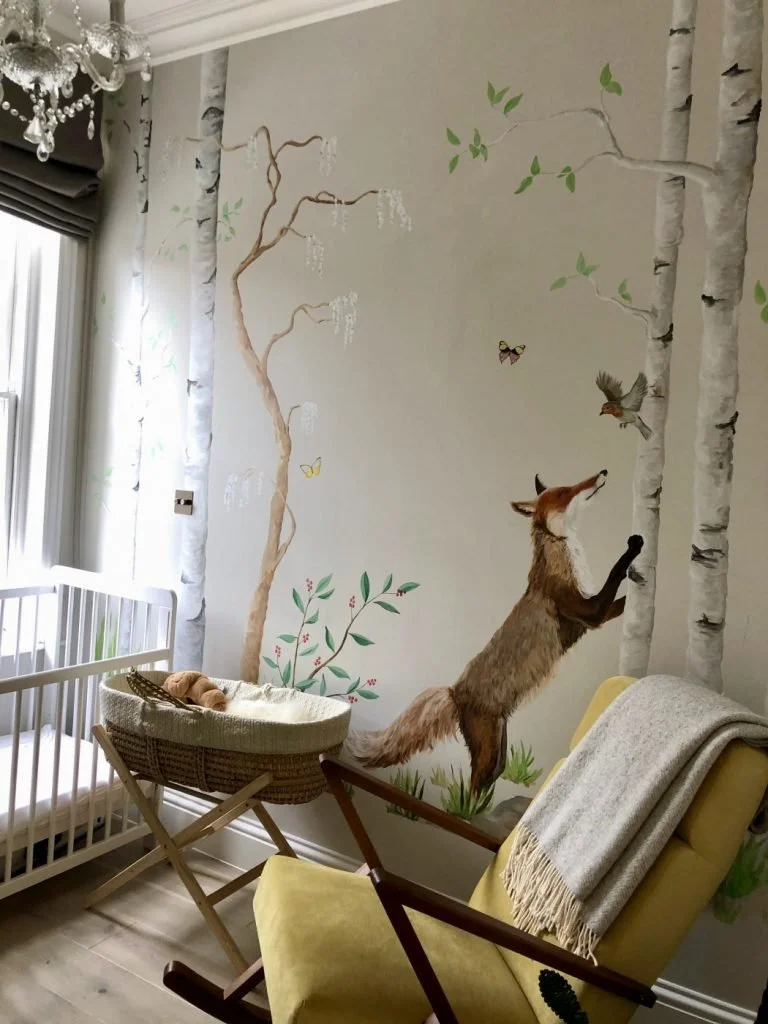A freshly painted mural
I have always advocated decorating with original artwork.
A hand painted mural is a wonderful way to add serious individuality to an interior, so for this post I have interviewed decorative artist, Serena Holliday, from Wall Stories London.
In my last post, which you can view here, I showed you round the festive home of interior designer, Fenella Cockcroft. You may remember her kitchen and the beautiful hand painted frieze across the chimney breast. The design is by Serena, who is a friend of hers.
I have become a big fan of her work and I was delighted to put some questions to her -
AG: Tell me a bit about your background and how you set up your mural painting business
SH: Most of my style has been self-taught, but my obsession with art and art history started very early with adventures to Rome as a child. I remember being in complete awe of the great masters. At school, we were so lucky to have the most incredible art department and I spent 100% of my time in the art block. I was not at all sporty or academic, but art was always fun - It felt wonderful to find my space.
After leaving school, my paintbrushes were almost entirely forgotten and, instead, I spent most of my working life as a chef, working in restaurants, catering companies and privately all over the world. Before the pandemic, I was the head chef of a thriving corporate catering company, a hugely creative role, but, as lockdown hit, it became obvious that there were going to be no corporations to cater for. So, my business partner and I put the executive lunches on a temporary hold and I escaped London to Yorkshire.
Suddenly, having been used to working 70+ hours a week for the last 10 years, I had very little to do. I definitely started to twitch! Two weeks into the world locking down my sister's baby was born and, predominately to keep me busy, I dug out some neglected acrylic paints and started painting my very first Wall Story. The strangest thing was it felt as though I had never stopped, I felt completely immersed in the little world I was creating.
Since then I have swapped the chef's knife for a paintbrush and I have been building my business as a decorative artist.
AG: Where do you find your inspiration?
SH: I draw inspiration from all sorts of places, but classical chinoiserie with a personalised and modern twist is a strong favourite. I am fascinated by the use of colour and palettes to create flow and mood within a piece. I also relish the opportunity to collaborate with the client to discover little details from their lives that we can subtly incorporate into the design.
AG: Are most of your clients designs their own ideas or do you guide them?
SH: After an initial conversation with the client, I can quickly grasp to what extent they would like to be involved in the design process. Most clients come to me with a vague outline of what they want or perhaps another piece that they have seen and enjoyed. This is the ideal jumping-off point for me. I can then go away and develop a mood board and some initial ideas or sketches. If the mood board feels true to their vision, I then move forward to the next stage. This is where I go away and I make an original design. I then develop this into a detailed digital mock-up of each wall of the mural and sometimes rendered so it can be visualised in the space. These schemes include a colour palette and bespoke details.
AG: Do you have a favourite project so far?
SH: This is such a tricky question, there have been so many highlights of building my portfolio, although there are a couple that stand out. The first full room project I did, a chinoiserie piece in an aquamarine dining-room, remains my largest project to date and took me 5 weeks to complete.
The client and I had long discussions about their favourite trees and flowers and what would make sense within her home to reflect the gardens outside. If you look at the space as a whole there is a coherent theme but also hidden away are characters and details that you would only spot or understand if you know the family. Like little in-jokes and nods to the home it sits in.
The other would probably be the Foxy nursery I did in Notting hill. This was only the second or third mural I had done. it was for one of my best pals and his wife whose baby boy was called Rafferty Fox. The clue was in the name all along. Claudia wanted something charming for a nursery but with a chic and calming palette. I think it was a great success and I hope it will stand the test of time and he will love it more and more as he gets older.
AG: How much should someone enquiring expect to pay for a mural?
SH: I find that charging per meter square seems to be the most transparent for the client. This avoids any unexpected costs as the project proceeds. These price brackets vary from £185 - £380+ per sq metre. This is defined by how detailed or densely populated a painted space is. Although I have a minimum fee of £600 for a small mural, most of my projects are typically £1,500 to £4,500 and I have a stage payment system to cover the step by step nature of the process.
What a wonderful way to create something totally unique and to add real wow-factor. Your home should tell your story and art is an obvious way to do this, but an artwork that you have helped design is even better: such a fun way of sharing your life's journey and important memories with your family and friends.
